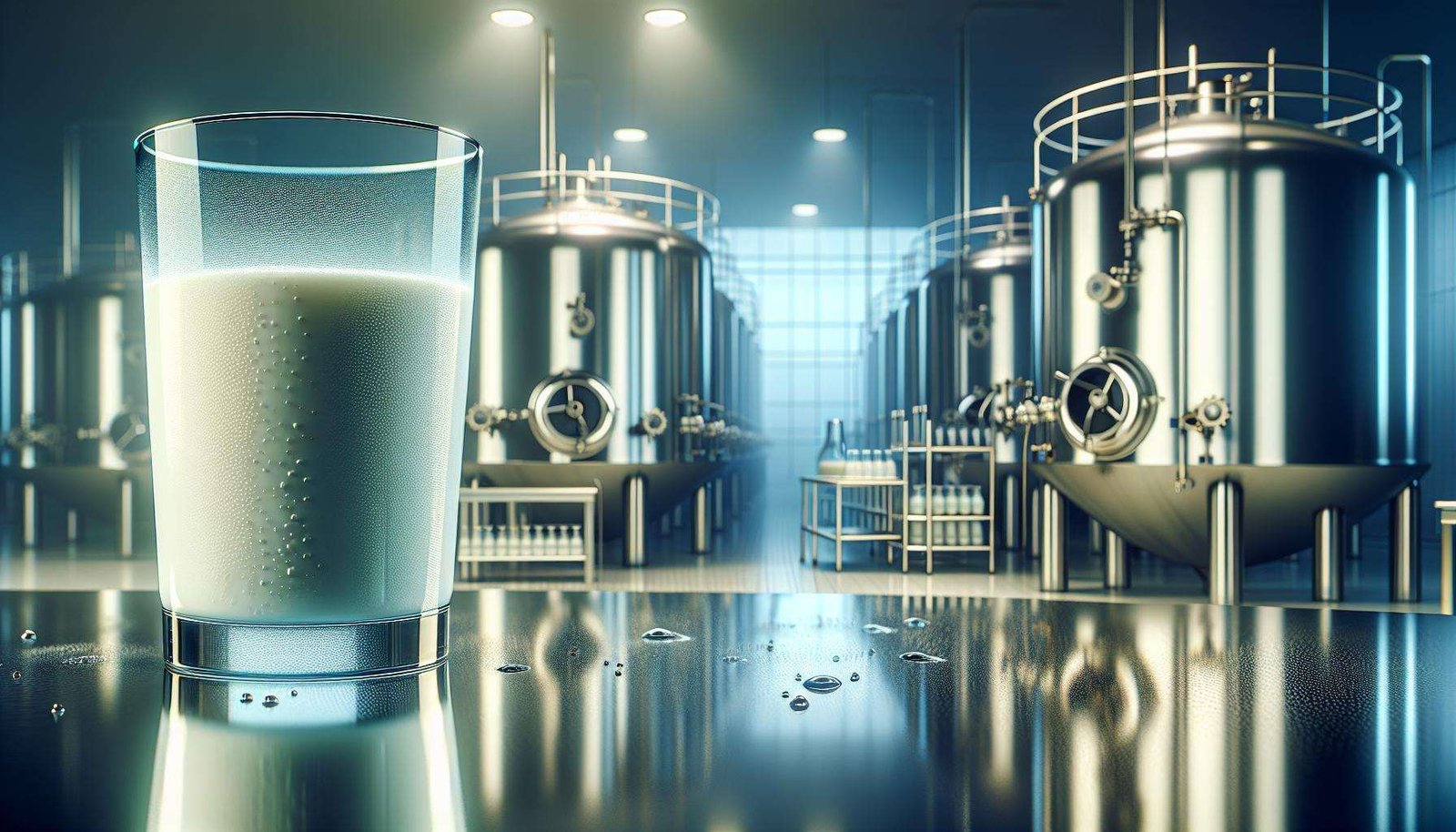
Imagine enjoying a cold glass of milk that’s never been near a cow or cooking a meal using proteins that were brewed, not farmed. I don’t know about you but sometimes when I think what milk is I think UCK.
Welcome to the future of food—a world where innovative technology is reshaping how we produce and consume food. This transformation not only promises exciting culinary adventures but also comes with significant benefits for our planet. Let’s delve into how milk without the cow and protein brewing mark a new era in sustainable food production, addressing environmental challenges while offering appetizing alternatives.
Reimagining Dairy: Milk Without the Cow
Dairy production has long been critiqued for its environmental impact, ranging from greenhouse gas emissions (e.g., methane from cows) to massive water usage. Enter lab-grown milk, or cultured milk, as a sustainable alternative. Unlike plant-based milks like almond or soy, lab-grown milk replicates the proteins found in cow’s milk through fermentation, not farming.
This process begins in a lab by identifying the key milk proteins, casein and whey, and then inserting their DNA sequences into yeast or other microbes. Through fermentation, these modified organisms produce proteins identical to those in cow’s milk. The resulting milk is biologically the same as traditional milk, offering the same taste, texture, and nutritional profile without involving any animals. According to Perfect Day, a leader in this field, producing milk in this way uses significantly less water and land, and emits fewer greenhouse gases compared to traditional dairy farming.
This revolutionary method addresses the environmental burden of dairy production and can significantly reduce our carbon footprint. With the dairy industry responsible for 4% of global greenhouse gas emissions, switching to lab-grown alternatives could be a game-changer for environmental sustainability.
Brewing Proteins: A New Culinary Frontier
Beyond milk, scientists are brewing proteins to tackle another environmental challenge—meat production. Traditional meat farming is notorious for its large carbon footprint, inefficiency in converting feed to meat, and ethical concerns regarding animal welfare. Brewing proteins could provide a sustainable solution.
At the heart of this innovation is a process called precision fermentation. Much like brewing beer, this technique uses modified microbes to produce specific proteins. For example, Impossible Foods uses this method to produce a protein called heme, giving its plant-based burgers a meaty taste. The same approach can be applied to create a wide range of proteins for various meat alternatives, effectively bypassing the need for animal farming.
Precision fermentation offers several advantages. It’s more efficient than traditional farming, requiring fewer resources such as water, land, and feed. It also generates fewer emissions. A study by the Good Food Institute estimates that cultivated proteins could reduce land use by up to 99% and greenhouse gas emissions by up to 98% compared to conventional meat production. This not only helps in tackling climate change but also alleviates pressures on biodiversity and land use.
Environmental and Social Implications
The shift towards lab-grown dairy and brewed proteins is not just a technological leap; it also presents significant social and environmental implications. As these innovations mature, they promise to improve food security by providing more resilient supply chains and reducing reliance on animal agriculture, which is vulnerable to diseases and climate change.
Moreover, these technologies could democratize food production, allowing regions with limited agricultural capabilities to produce their own milk and protein products independently. This can enhance food sovereignty, allowing communities to consume local and culturally relevant foods without environmental degradation.
However, transitioning to these novel foods requires thoughtful consideration of ethical and regulatory aspects. Governments must establish clear frameworks to ensure these products are safe and accessible. Furthermore, while the technology offers vast potential, it must be accompanied by public awareness and acceptance. Many consumers are still hesitant about lab-grown foods, often due to misconceptions or lack of trust in the technology.
Cultural Shifts and Lifestyle Changes
The broader adoption of lab-grown and brewed foods could catalyze significant cultural shifts. Imagine a world where restaurants offer meals made entirely from cultured and brewed ingredients, or a typical household grocery list includes lab-grown milk and cultured meats.
Culinary professionals are already beginning to explore these ingredients, integrating them into traditional recipes. This not only retains cultural heritage but also sparks innovative gastronomic creations. Pioneers in the food industry advocate for these technologies as pathways to a more sustainable and equitable food system.
Surprisingly, this shift might even impact our daily habits and dietary patterns, encouraging more sustainable consumption choices. Just as organic and plant-based foods have established themselves in mainstream cuisine, lab-grown milk and brewed proteins have the potential to become staples in our diets, contributing to improved global health outcomes.
Looking Ahead
The future of food is here, and it is being crafted with sustainability at its core. While cultivating milk and brewing proteins might sound like a storyline from a sci-fi novel, these innovations are rapidly becoming a reality. As we navigate these culinary advancements, the focus must remain on ensuring that they provide ecological benefits and are accessible to all. By embracing these technologies, we can savor our meals while contributing to a healthier planet. The journey to integrating these foods into everyday life will require collaboration across sectors—scientists, businesses, policymakers, and consumers all play vital roles.
Ultimately, the evolution of our food system is a crucial step towards addressing the planet’s pressing environmental challenges. As milk is brewed without the cow and proteins are crafted in vats instead of fields, we take a step closer to a sustainable and environmentally friendly future of food. This promising horizon hinges on our collective commitment to innovation, community involvement, and ecologically sound practices.
The post The Future of Food: Milk Without Cows and Brewing Proteins for a Sustainable Tomorrow appeared first on Green.org.














